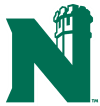'Northwest Natural Sciences prides itself on being THE place for Undergraduate Science. We have great instructors, instrumentation that is the envy of bigger institutions, and we see the world as our classroom. Our geologists and biologists put many miles on our two dedicated vans doing everything from classwork out at Mozingo Lake to multi-week fieldtrips over multiple states with their national parks
All of this takes money, and while the university does its best to resource us, there are some gaps. Much of our impressive scientific instrumentation is now 25 years old and we sometimes struggle to replace equipment that is no longer economically repairable. Donors willing to support instrumentation repair and replacement allow us to continue our tradition of providing graduates already proficient with industry standard instrumentation so they are truly career ready day one. This encompasses everything from basic microscopes to atomic force microscopes, and even the scanning electron microscope.
Our students and faculty love their field work. Our 12 and 15 passenger vans, along with a full set of camping equipment (tents, sleeping bags, a field kitchen) allow our geologists and biologists to take students on multi-week field trips at a very low costs. The department does its best to support these trips, but cannot cover all or even most of the costs. Donor dollars (even small amounts) allow us to continue to use the world as our classroom while keeping costs low. We do our best to ensure our vans are safe and comfortable, but they have over 100,000 miles and will not last forever. A donor or donors willing to purchase a new van (surprisingly less expensive than you might think on state contract) would be a Godsend.
We are very grateful for the generosity of donors sponsoring scholarships. This is always a great investment in our collective futures. Many of our students have to work full or part time to put themselves through school, so scholarships are always appreciated as every bit helps."
-Mark Corson, Chair of the Department of Natural Sciences

